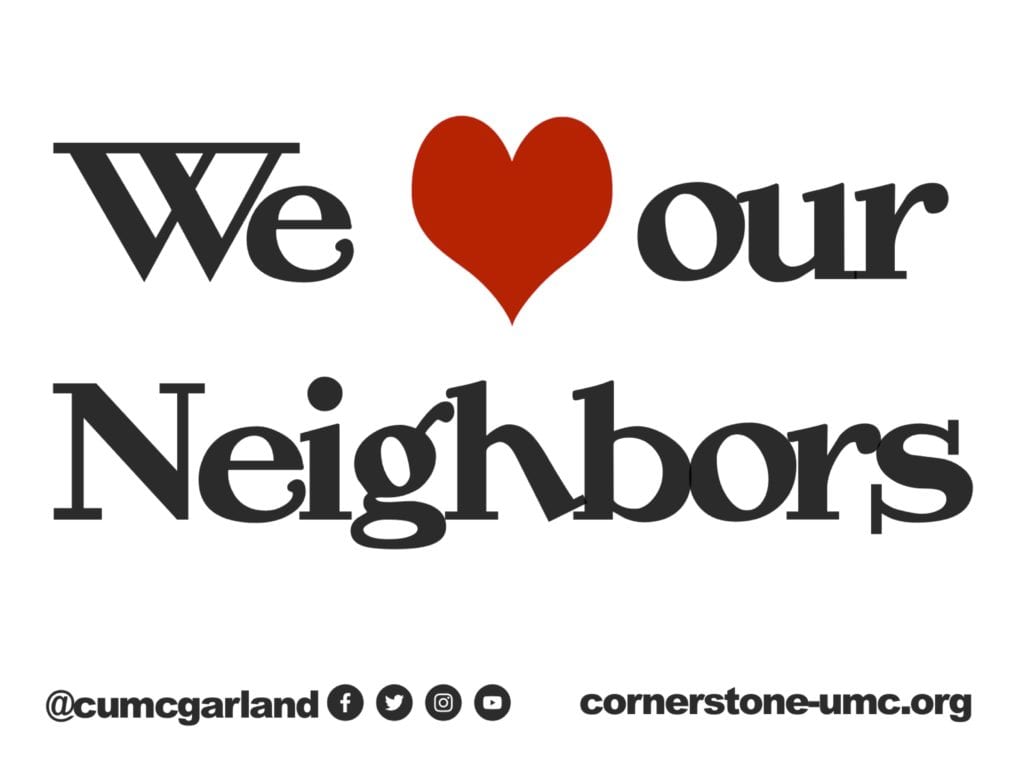
It’s a beautiful day in this neighborhood,
A beautiful day for a neighbor,
Would you be mine?
Could you be mine?
It’s a neighborly day in this beauty wood,
A neighborly day for a beauty,
Would you be mine?
Could you be mine?
I have always wanted to have a neighbor just like you,
I’ve always wanted to live in a neighborhood with you.
So let’s make the most of this beautiful day,
Since we’re together, we might as well say,
Would you be mine?
Could you be mine?
Won’t you be my neighbor?
Won’t you please,
Won’t you please,
Please won’t you be my neighbor?
This is a song I grew up listening to on the show, Mr. Rogers’ Neighborhood. If you aren’t familiar with the show it was created by Fred Rogers, a Presbyterian minister, who wanted to emphasize educating the social and emotional needs of preschoolers. The show took place in Mr. Rogers’ make believe neighborhood and each episode tackled various topics such as the death of a family pet, sibling rivalry, the addition of a newborn into a family, moving and enrolling in a new school, and divorce. What I recall most about the show was that Mr. Rogers referred to every neighbor as his friend and no one went unnoticed. Because of this I wanted to be Mr. Rogers friend and neighbor.
As we begin to consider reopening our church, I want to pose a question to you: Is our church friendly? Of course, you may think, well what is the alternative? Unfriendly? As a small church, unfriendliness can be a major blind spot for us. It is easy to think that no one goes unnoticed in a small church, but that is simply not true. No matter the size of the church, persons go unnoticed all the time. Unfriendliness is often a blind spot for the smaller church because it is area that we think of as a problem for larger churches. Are there any ways that we are unintentionally unfriendly? To answer this let’s dive into scripture!
In God’s grip,
Pastor Chuck Church
Read Luke 10:25-37
Exploring Questions:
- Why do you think the expert in the law asked Jesus, “What must I do to inherit eternal life?”
- Why was his follow up question, “Who is my neighbor?”
- What do you know of the man walking from Jerusalem to Jericho? Of the priest? Of the Levite (a Temple Assistant)? Of the Samaritan?
- How would you have expected each of them to have acted? How is the way they acted contrary to what is expected?
- What do you think the role of neighbor is according to Jesus?
Diving Deeper:
- For Jesus, to love your neighbor as you love yourself was to practice social justice towards your fellow human beings. The first verse Jesus quotes is from Deuteronomy 6:5, but the second is from Leviticus 19:9-18. Read both.
- In Leviticus 8-10 the role of the priest is to act as the mediator between God and humankind. How has the priest failed in upholding that responsibility? How might they be excused?
- In the book of Numbers (Numbers 18:2-6), the Levites were charged with assisting the priests and taking care of the Tabernacle. How has the Levite failed in upholding that responsibility? How might they be excused?
- A Samaritan was considered ceremonially unclean, an outcast, and a heretic. How has the Samaritan exceeded what was expected of him?
Applying Questions:
- Have our neighbors gone unnoticed by us?
- Who are our neighbors? What do they look like? What are they doing? How do we get to know them?
- In our local church context who are the priests and Levites? What are our expectations of those roles and how have we excused unfriendly/un-neighborly actions?
- In what ways can we act more like the good Samaritan to our neighbors? What rules, expectations, actions have we created that have kept us from being more neighborly?
- What is one action you can take right now to be a better neighbor?


